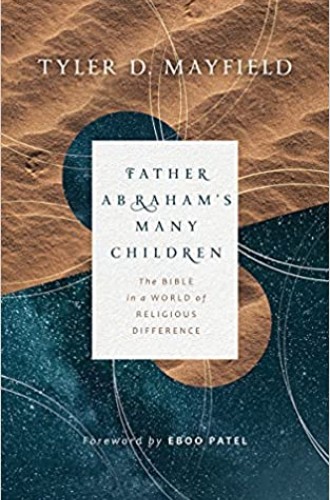Approaching religious pluralism through the Bible’s other brothers
Tyler Mayfield offers a fresh look at Cain, Ishmael, and Esau.
This book isn’t what it seems. I approached it expecting to find a description of different religions, specifically the Abrahamic faiths, with a strong encouragement to appreciate their unique aspects as well as the commonalities. I’ve read many such books and even taught them. But when I opened Father Abraham’s Many Children, I knew within a few pages that I’d found something better.
Tyler Mayfield offers an expansive translation and interpretation of three familiar sets of brothers—Cain and Abel, Isaac and Ishmael, and Esau and Jacob—particularly in terms of what it means to be “chosen.” His bold premise is that the way we translate and view the forsaken brother in each duo, the one who is invisible and discounted in most interpretations, affects our ability to live in a religiously plural world, nation, and community and even our relationships at our own family tables.
Mayfield boldly states that “any claim to be God’s chosen people seems to strike against the notion of religious traditions’ validity and vibrancy . . . establishing a category called ‘God’s people’ [that] runs the risk of leaving someone out.” His translation and interpretation of the three sets of brothers challenges us to align our reading of the Bible with our aspiration for religious pluralism.





